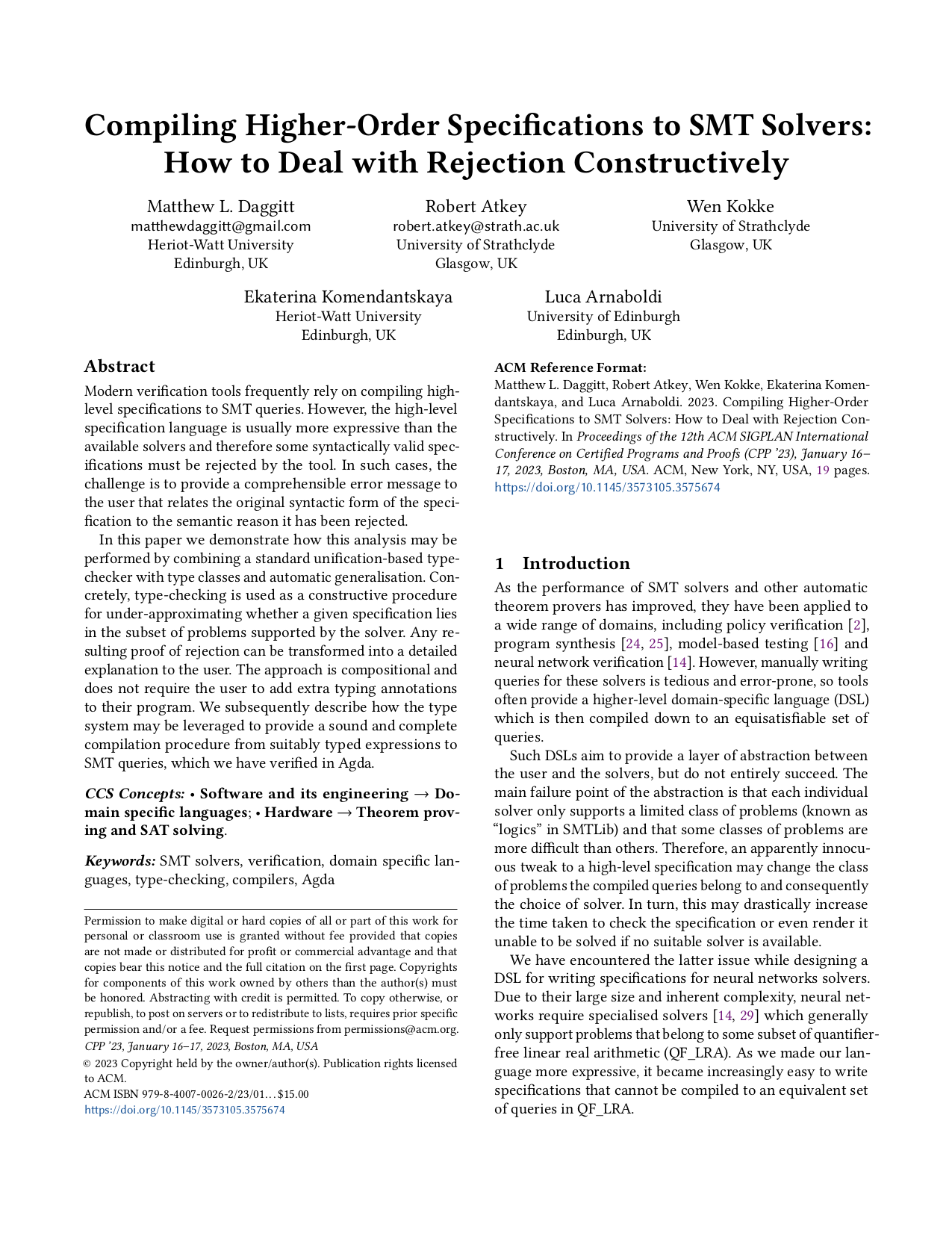Compiling Higher-Order Specifications to SMT Solvers: How to Deal with Rejection Constructively
Publication Information
Matthew L. Daggitt, Robert Atkey, Wen Kokke, Ekaterina Komendantskaya, and Luca Arnaboldi. Compiling Higher-Order Specifications to SMT Solvers: How to Deal with Rejection Constructively. In Robbert Krebbers, Dmitriy Traytel, Brigitte Pientka, and Steve Zdancewic, editors, Proceedings of the 12th ACM SIGPLAN International Conference on Certified Programs and Proofs, CPP 2023, Boston, MA, USA, January 16-17, 2023. ACM, 2023.DOI: 10.1145/3573105.3575674
Abstract
Modern verification tools frequently rely on compiling high-level specifications to SMT queries. However, the high-level specification language is usually more expressive than the available solvers and therefore some syntactically valid specifications must be rejected by the tool. In such cases, the challenge is to provide a comprehensible error message to the user that relates the original syntactic form of the specification to the semantic reason it has been rejected.
In this paper we demonstrate how this analysis may be performed by combining a standard unification-based type-checker with type classes and automatic generalisation. Concretely, type-checking is used as a constructive procedure for under-approximating whether a given specification lies in the subset of problems supported by the solver. Any resulting proof of rejection can be transformed into a detailed explanation to the user. The approach is compositional and does not require the user to add extra typing annotations to their program. We subsequently describe how the type system may be leveraged to provide a sound and complete compilation procedure from suitably typed expressions to SMT queries, which we have verified in Agda.
Additional Information
This paper documents the inference technique used in the Vehicle Specification Language (GitHub). The normalisation procedure and its correctness proof have been implemented in Agda (GitHub repository). The talk was recorded.
